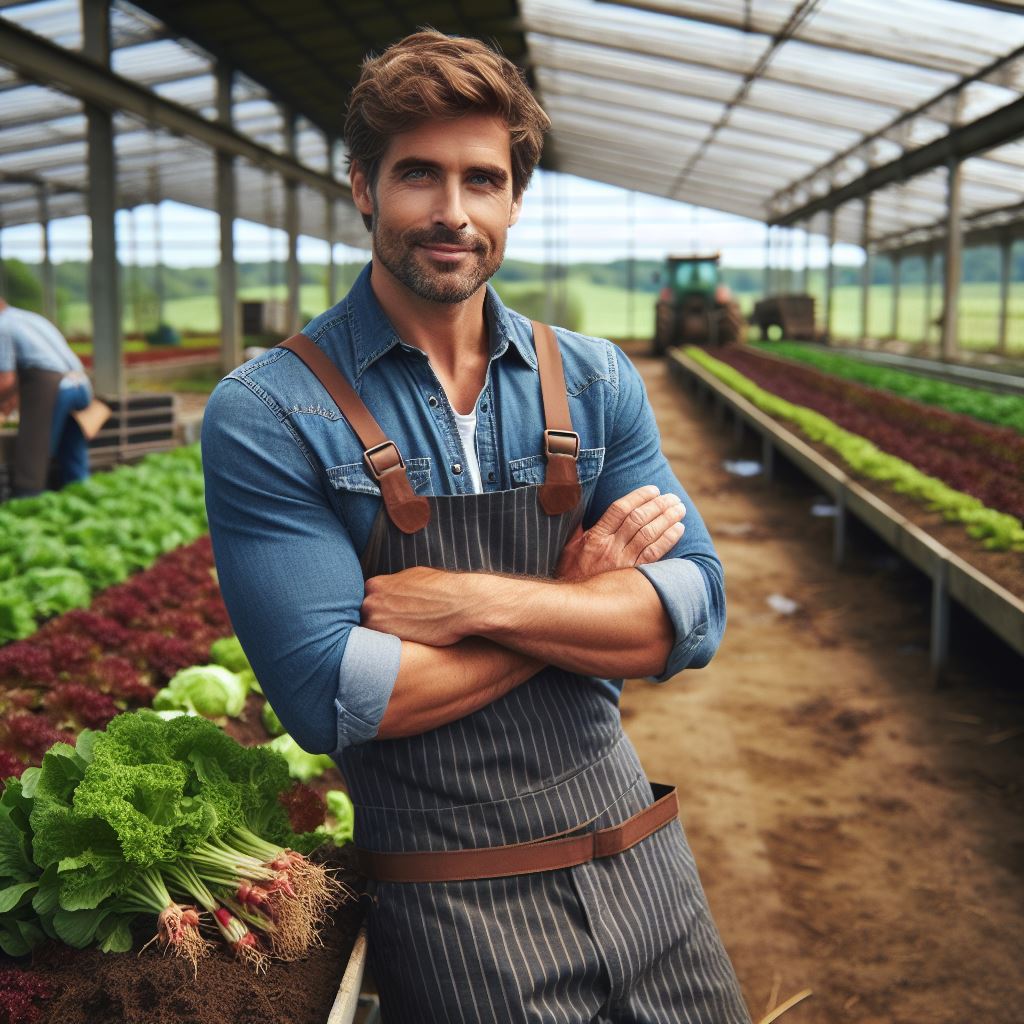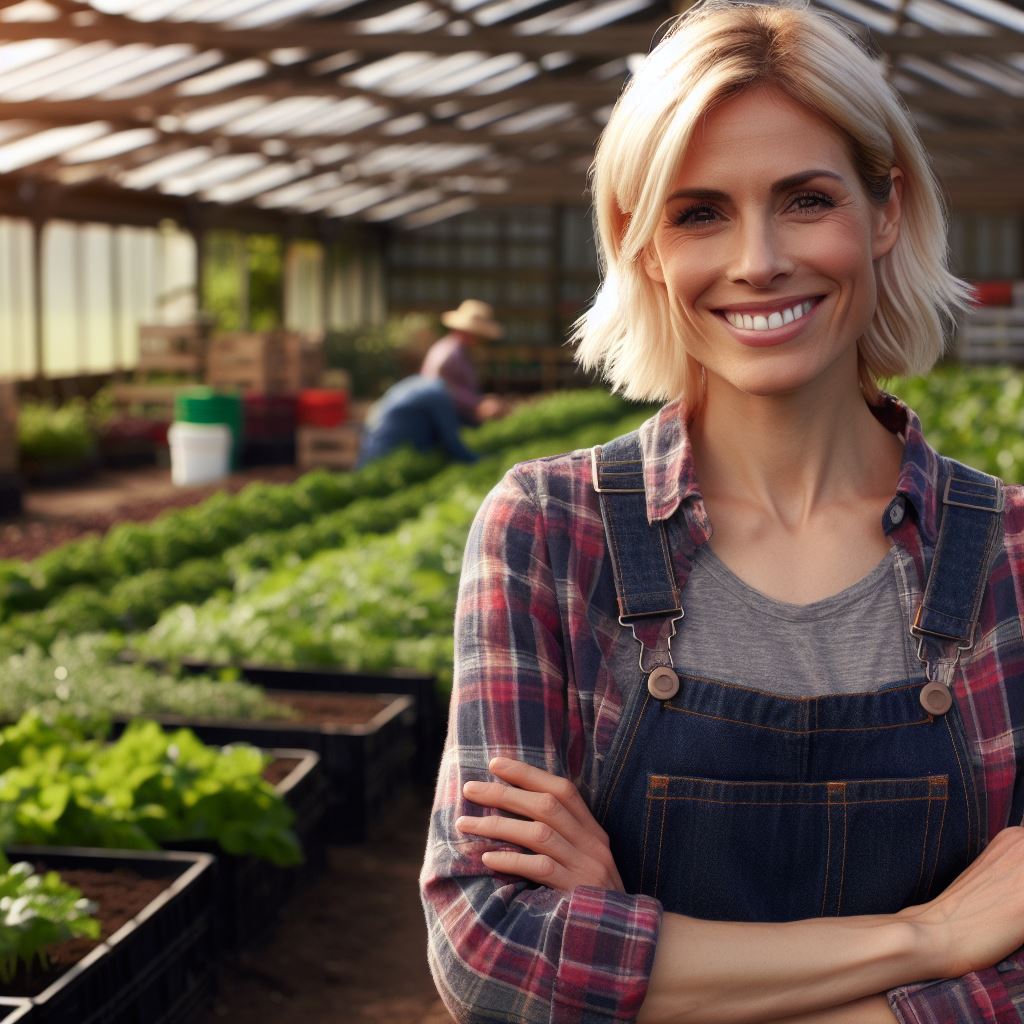Introduction
Farming regulations play a crucial role in the UK, ensuring the safety and sustainability of agricultural practices.
This blog post aims to provide a comprehensive overview of these regulations, their significance, and the content that will be covered.
Significance of Farming Regulations in the UK
Farming regulations in the UK are vital for multiple reasons. They ensure the protection of public health by maintaining high standards of food safety and hygiene.
Additionally, these regulations help safeguard animal welfare and promote sustainable farming practices.
Purpose of the Blog Post
The purpose of this blog post is to educate readers on the importance of farming regulations in the UK.
By understanding these regulations, individuals can appreciate their role in maintaining a safe and sustainable agricultural industry.
This knowledge can also assist farmers, consumers, and policymakers in making informed decisions.
Brief Overview of Content
The content of this blog post will cover various aspects of UK farming regulations.
It will delve into the key regulations governing food safety, animal welfare, environmental protection, and pesticide control.
Furthermore, it will highlight the role of regulatory bodies and the enforcement mechanisms in place.
Additionally, it will explore the impact of Brexit on farming regulations, as leaving the EU has significant implications for the UK’s farming industry.
The blog post will conclude by emphasizing the importance of staying updated with farming regulations and their continuous adaptation to meet evolving challenges.
In summary, this blog post aims to provide a comprehensive overview of UK farming regulations, their significance, and the impact they have on the agricultural sector.
By understanding and complying with these regulations, the UK ensures a safe, sustainable, and prosperous farming industry.
Overview of UK Agriculture
Agriculture in the United Kingdom has a rich history and continues to play a vital role in the country’s economy.
Personalized UK Career Consulting
Receive tailored career guidance designed just for you. Get actionable steps and expert support to boost your career in 1-3 days. Take control of your career now.
Get StartedUnderstanding the evolution of farming practices, the current state of agriculture, and its importance is crucial for comprehending UK farming regulations. Let’s delve into these aspects:
Brief History of Farming in the UK
- Neolithic era (around 4000 BC): Introduction of agriculture to the British Isles through early crops like wheat and barley.
- Roman period (43 AD onwards): Enhanced farming techniques, including vineyards and the cultivation of new crops.
- Medieval period (11th to 15th centuries): The open-field system dominated, with common grazing lands and enclosed farming.
- 18th-century agricultural revolution: Advances in crop rotation, selective breeding, and improved machinery.
- 20th century: Agricultural mechanization, increased use of fertilizers and pesticides, and the establishment of agricultural policies.
Current State of Agriculture in the UK
- Land Use: Approximately 70% of the UK is utilized for agriculture, encompassing arable land, grassland, and upland areas.
- Farming Types: The UK boasts diverse farming systems, including arable farming, livestock farming, horticulture, and aquaculture.
- Primary Crops: Key crops grown in the UK include wheat, barley, oats, potatoes, sugar beets, and oilseed rape.
- Livestock: British agriculture is renowned for its livestock production, particularly sheep, cattle, and poultry.
- Farm Size: Farms vary in size, ranging from small family-run businesses to large commercial enterprises.
Importance of Agriculture to the UK Economy
Agriculture significantly contributes to the UK’s economy, showcasing its importance in various ways:
- Food Security: Domestic agriculture plays a crucial role in ensuring a stable food supply for the nation.
- Employment: The sector provides jobs to over 476,000 people, encompassing farmers, farm workers, scientists, and other related roles.
- Rural Economy: Agriculture sustains rural communities by fostering economic growth and supporting local businesses.
- Exports: The UK exports renowned agricultural products, such as Scotch beef and lamb, contributing to the country’s trade balance.
- Tourism and Environment: Agriculture contributes to the picturesque landscapes that attract tourists and maintains biodiversity.
In essence, comprehending the essence of UK farming regulations necessitates grasping the historical background, current state, and economic significance of agriculture in the country.
Stay tuned for our next blog section, where we will explore the primary regulations governing UK farming practices!
Need for Farming Regulations
Reasons behind the implementation of farming regulations
In the UK, farming regulations are put in place for several important reasons:
- Protecting animal welfare is a crucial aspect of farming regulations.
- Ensuring food safety and quality is a top priority for the farming industry.
- Minimizing environmental impact is essential to preserve natural resources and ecosystems.
- Promoting sustainable farming practices is necessary for long-term viability of the industry.
Let’s delve into each of these reasons in detail:
Protecting Animal Welfare
The implementation of farming regulations aims to provide adequate protection and care for animals in farming operations. Regulations cover various aspects, including:
- Proper housing and living conditions for animals.
- Regular veterinary care and access to clean water and nutritious food.
- Prevention of overcrowding and minimizing stress on animals.
- Restrictions on the use of antibiotics and hormones.
These regulations safeguard the well-being of animals, ensuring they are treated ethically and humanely throughout their lives.
Ensuring Food Safety and Quality
Farming regulations play a vital role in guaranteeing that the food produced is safe for consumption and maintains high quality standards. Regulations encompass:
- Regular inspections of farms and food production facilities to monitor compliance.
- Proper handling, storage, and transport of agricultural products to prevent contamination.
- Implementing traceability systems that enable the identification of the origin of food products.
- Setting standards for labeling and packaging of agricultural goods.
Through these regulations, consumers can have confidence in the safety and quality of the food they purchase and consume.
Minimizing Environmental Impact
Farming practices can have significant environmental consequences. Regulations aim to minimize these impacts through:
- Limiting the use of agrochemicals to reduce soil, water, and air pollution.
- Implementing measures to conserve water and reduce excessive water usage in agriculture.
- Promoting responsible waste management and recycling practices.
- Protecting natural habitats and biodiversity on farmland.
By adhering to these regulations, farmers contribute to preserving the environment and mitigating the negative effects of farming on ecosystems.
Promoting Sustainable Farming Practices
To ensure the long-term viability of farming, regulations encourage the adoption of sustainable practices, including:
- Encouraging organic and agroecological farming methods that minimize chemical inputs.
- Supporting crop rotation and integrated pest management techniques to reduce reliance on pesticides.
- Promoting responsible land management and soil conservation practices.
- Encouraging the use of renewable energy sources on farms.
By promoting sustainability, farming regulations contribute to the preservation of natural resources and the resilience of the agricultural sector.
Your Dream Job Starts with a Perfect CV
Get a tailored CV and cover letter that captures your unique strengths and stands out in your industry. Let us help you make an unforgettable first impression.
Get StartedLastly, farming regulations in the UK serve as a crucial framework to protect animal welfare, ensure food safety and quality, minimize environmental impact, and promote sustainable farming practices.
By complying with these regulations, farmers contribute to a more ethical, safe, and environmentally friendly agricultural industry.
Government Agencies and Bodies
When it comes to farming regulations in the UK, there are several key organizations responsible for enforcing and overseeing these regulations.
These organizations work together to ensure that farms operate in compliance with the law and follow best practices for environmental sustainability, animal welfare, and food safety.
Let’s take a closer look at some of these bodies:
Department for Environment, Food and Rural Affairs (DEFRA)
Key organizations responsible for farming regulations in the UK
DEFRA is the UK government department responsible for environmental protection, food production, and rural affairs.
In terms of farming regulations, DEFRA plays a crucial role in developing policies and legislation to support sustainable agriculture and rural communities.
They work closely with farmers, stakeholders, and the public to create a balanced and effective regulatory framework that benefits both the industry and the environment.
Agriculture and Horticulture Development Board (AHDB)
The AHDB is a levy-funded organization that provides support and guidance to farmers, growers, and the wider agricultural industry.
Their role in farming regulations involves conducting research, providing technical information, and delivering knowledge transfer programs to promote best practices.
The AHDB also works collaboratively with farmers and industry stakeholders to address challenges and improve productivity, efficiency, and sustainability in the sector.
National Farmers’ Union (NFU)
The NFU is a representative body for farmers and growers in England and Wales. They play a vital role in advocating for the interests of farmers and ensuring their voices are heard in policy discussions.
The NFU works closely with government bodies like DEFRA and other organizations to influence regulations and policies that affect the farming community.
They aim to secure a sustainable and profitable future for British agriculture while also safeguarding the environment and promoting high animal welfare standards.
Optimize Your LinkedIn for Success
Boost your LinkedIn profile with a professional bio, keyword-rich headline, and strategic recommendations that attract recruiters. Stand out from the crowd and get noticed.
Optimize NowRole and Responsibilities of Each Organization
Each of these organizations has specific roles and responsibilities within the UK farming sector to ensure that regulations are effectively enforced and followed:
- DEFRA develops policies, legislation, and regulations related to farming, environmental protection, and rural affairs.
- The AHDB provides support, guidance, and information to farmers, growers, and the wider industry to promote best practices and improve productivity.
- The NFU represents and advocates for the interests of farmers, working to ensure their voices are heard in policy discussions.
Together, these organizations play a crucial role in creating a robust and sustainable regulatory framework for the UK farming industry.
By working collaboratively and engaging with stakeholders, they aim to support farmers, protect the environment, and ensure the production of safe and high-quality food for the nation.
DEFRA, AHDB, and the NFU collaborate to regulate the UK farming sector, enforcing rules, offering support, and advocating for farmers’ interests.
These organizations play a vital role in promoting sustainable agriculture, protecting the environment, and ensuring the production of safe and high-quality food.
Read: UK Aquaculture Technician: Career FAQs

Key Farming Regulations
The main regulations affecting UK farmers
When it comes to farming in the UK, there are several important regulations that farmers need to be aware of.
These regulations cover a wide range of areas, from agricultural policies to environmental stewardship. In this section, we will provide an overview of the main regulations affecting UK farmers.
Common Agricultural Policy (CAP)
- The CAP is a European Union policy that aims to support farmers and promote sustainable agriculture.
- It provides financial assistance and sets rules for farming practices, including subsidies and market regulations.
- The CAP has undergone reforms over the years, with the latest changes focusing on greener and more sustainable farming practices.
Basic Payment Scheme (BPS)
- The BPS is a subsidy scheme that provides direct payments to farmers based on the land they manage.
- It is the largest support scheme for farmers in the UK and is based on a system of entitlements and payment regions.
- Under the BPS, farmers need to meet certain criteria and follow specific rules to be eligible for payments.
Nitrate Vulnerable Zones (NVZ)
- NVZs are designated areas where farming activities may contribute to water pollution caused by nitrates.
- Farmers within NVZs need to comply with additional rules and regulations to manage nitrogen pollution effectively.
- This includes following certain farming practices and keeping detailed records of activities related to fertilizers and manure management.
Cross Compliance
- Cross compliance refers to the requirement for farmers to meet a set of statutory management requirements.
- These requirements cover areas such as crop diversification, soil protection, and maintaining permanent grassland.
- Farmers who fail to meet these requirements may face penalties, including reduced payments or exclusion from subsidy schemes.
Animal Welfare Laws
- The UK has strict regulations in place to ensure the welfare of farm animals.
- These regulations cover areas such as housing conditions, health, transportation, and the slaughter of animals.
- Farmers must comply with these laws and take appropriate measures to ensure the well-being of their livestock.
Environmental Stewardship Schemes
- Environmental stewardship schemes are incentives for farmers to manage their land in an environmentally friendly way.
- These schemes provide financial support for practices such as habitat creation, soil conservation, and water management.
- By participating in these schemes, farmers can contribute to the preservation and enhancement of the natural environment.
In general, the farming industry in the UK is subject to various regulations that aim to promote sustainable agriculture, protect the environment, and ensure the welfare of animals.
Familiarizing oneself with these regulations is essential for farmers to operate within the law and make the most of available support schemes.
Read: Aquaculture Law: UK Regulations Explained
Explore Further: Foresters’ Role in Fighting Wildfires
Challenges and Controversies
Farmers in the UK face a multitude of challenges as a result of regulatory requirements. These challenges can range from economic viability to criticism and controversies surrounding certain regulations.
Potential challenges faced by farmers due to regulatory requirements
- Increased paperwork and administrative burden, taking time away from actual farming activities.
- Costs associated with implementing and maintaining compliance with regulations.
- Adapting to new regulations and ensuring ongoing compliance with changing requirements.
- Access to essential resources such as land, water, and livestock while meeting regulatory standards.
- Competing with imported agricultural products that may not face the same regulatory requirements.
Balancing economic viability with regulatory compliance
One of the major challenges faced by farmers is striking a balance between the economic viability of their operations and the need to comply with regulations.
The cost of compliance can often be significant, especially for small-scale farmers.
While regulations are put in place to protect the environment, animal welfare, and public health, the financial burden can sometimes make it difficult for farmers to remain profitable.
Therefore, it is crucial to find ways to support farmers in implementing necessary changes while ensuring their economic sustainability.
Criticisms and controversies surrounding certain regulations
There are several regulations in the UK farming industry that have faced criticisms and controversies. Some of these include:
- The use of pesticides and chemicals in agriculture.
- The impact of intensive farming practices on animal welfare.
- The regulation of genetically modified organisms (GMOs) in farming.
- The restrictions on agricultural subsidies and their impact on farmers’ incomes.
These controversies highlight the ongoing debates in the agricultural industry regarding the balance between meeting regulatory standards and ensuring the sustainability of farming practices.
Discussion on ongoing debates in the agricultural industry
The agricultural industry in the UK is constantly evolving, and ongoing debates shape the future of farming regulations. Some of the key topics of discussion include:
- Sustainable farming practices and their role in mitigating climate change.
- The use of genetically modified crops and their potential benefits or risks.
- The need for effective regulation to protect soil quality and biodiversity.
- The impact of Brexit on farming regulations and international trade.
These ongoing debates highlight the importance of continuous evaluation and adaptation of farming regulations to address emerging challenges and ensure a sustainable future for UK farmers.
Generally, UK farmers face various challenges due to regulatory requirements, including administrative burdens, compliance costs, and competition with imports.
Balancing economic viability with compliance is a major challenge, and certain regulations have faced criticisms and controversies.
Ongoing debates in the agricultural industry drive the evolution of farming regulations.
Read: Aquatic Health Management by UK Experts
Benefits and Future of Farming Regulations
Positive impacts of farming regulations on the industry
- Increased food safety: Farming regulations ensure that agricultural products meet stringent quality standards, reducing the risk of foodborne illnesses.
- Improved animal welfare standards: These regulations promote ethical treatment of animals, protecting them from cruelty and ensuring their well-being.
- Enhanced public health: Farming regulations require farmers to follow specific guidelines, minimizing the presence of harmful substances in food production.
- Strengthened consumer confidence: Strict regulations provide a sense of assurance to consumers, assuring them that the food they consume is safe and of high quality.
- Fair trade practices: Farming regulations promote fair competition, preventing unfair practices that could lead to a monopoly in the industry.
Safeguarding consumer health and confidence
- Detection and prevention of contamination: Farming regulations include regular inspections and testing to identify and eliminate potential sources of contamination.
- Labeling and traceability: These regulations require clear labeling of food products, allowing consumers to make informed choices while also enabling easy traceability in case of a recall or outbreak.
- Allergen control: Farming regulations address the proper handling and labeling of allergens, protecting individuals with food sensitivities or allergies.
- Hygiene standards: Strict regulations mandate hygiene practices in farming, reducing the risk of contamination during production, storage, and transportation.
- Quality control: Farming regulations ensure that agricultural products meet specific quality standards, ensuring consistent and reliable food supply for consumers.
Enhancing environmental sustainability
- Soil and water conservation: Farming regulations promote sustainable farming practices, such as crop rotation and the responsible use of pesticides and fertilizers, to protect soil and water resources.
- Biodiversity preservation: Regulations encourage the preservation of wildlife habitats and the protection of native plant and animal species, contributing to overall ecosystem health.
- Reduced carbon footprint: By adhering to regulations that promote sustainable farming techniques, farmers can reduce greenhouse gas emissions, helping combat climate change.
- Waste management: Regulations ensure proper disposal of agricultural waste, reducing pollution and minimizing the negative impact of farming on the environment.
- Conservation of energy resources: Regulations incentivize the adoption of energy-efficient practices, such as the use of renewable energy sources and energy-saving technologies in farming operations.
Potential future developments in farming regulations
- Technological advancements: As technology continues to evolve, farming regulations may adapt to incorporate innovations that improve efficiency, productivity, and sustainability.
- Enhanced data collection and analysis: Regulations may require farmers to collect and report data regarding their farming practices to evaluate their environmental impact and inform policy decisions.
- Strengthened international cooperation: Future farming regulations may involve collaboration between nations to address global challenges such as climate change and food security.
- Focus on alternative farming methods: With a growing emphasis on sustainable agriculture, future regulations may prioritize organic farming, vertical farming, or other innovative techniques.
- Consumer-driven regulations: Increasing consumer awareness and demands for transparency may drive the development of regulations that address specific concerns, such as animal welfare or genetically modified organisms (GMOs).
To summarize, farming regulations bring numerous benefits to the industry, including improved food safety, animal welfare, and environmental sustainability.
These regulations safeguard consumer health, enhance confidence, and pave the way for future advancements in farming practices.
As the agriculture sector evolves, farming regulations will play a critical role in ensuring a sustainable and responsible industry.
Read: Aquaculture Equipment Essentials in the UK
Conclusion
Understanding and complying with UK farming regulations is vital for farmers.
Complying with these regulations ensures the safety and well-being of animals, protects the environment, and maintains food safety standards.
It is crucial for farmers to stay informed about any changes or updates to regulations and engage in discussions with other industry professionals.
By staying informed and actively participating in discussions, farmers can ensure that their practices align with the latest regulations and contribute to sustainable and responsible farming in the UK.
Compliance with farming regulations not only benefits farmers but also helps to maintain the reputation of the UK agricultural sector and ensures the long-term viability of the industry.
So, stay informed, comply with regulations, and actively engage in discussions to promote a thriving and sustainable farming sector in the UK.
[E-Book for Sale]
500 Cutting-Edge Tech Startup Ideas for 2024 & 2025: Innovate, Create, Dominate
$19.99 • 500 Tech Startup Ideas • 62 pages
You will get inspired with 500 innovative tech startup ideas for 2024 and 2025, complete with concise descriptions to help you kickstart your entrepreneurial journey in AI, Blockchain, IoT, Fintech, and AR/VR.




